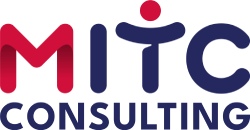The trend is towards entrepreneurship, but becoming self-employed in Switzerland raises a number of questions, including accounting.
What are the accounting rules in Switzerland? Is it worth doing your own accounting? Are there any good accounting software for self-employed?
In this guide to Swiss accounting, we take a look at your accounting obligations in Switzerland and your options for bookkeeping.
Then it will be up to you to decide whether you feel up to doing your own bookkeeping, whether you would rather leave it to an expert, or whether you would simply get rid of all your administrative tasks by opting for the security of freelance accounting.
[TOC]
Accounting rules in Switzerland
As you can imagine, accounting rules in Switzerland may seem complex, but it is important to know your obligations to avoid tax adjustments. To make it easier for you, the grey box below summarises the key points of this chapter.
- The accounting of a self-employed person in Switzerland only becomes compulsory from an annual turnover of CHF100,000. Simplified bookkeeping is still required to declare income
- As a sole proprietorship, double-entry bookkeeping is only mandatory for a turnover of more than CHF 500,000
- Double-entry accounting is mandatory for legal entities, regardless of the annual turnover
- You are subject to VAT from CHF100,000 annual turnover
- Auditing of accounts is not mandatory for sole proprietorships
Compulsory accounting (Swiss Code of Obligations)
In Switzerland, the duty to keep accounts depends on the turnover achieved during the financial year and the legal form of your business.
Case 1: Sole proprietorship + annual turnover of less than CHF 100,000
If you have a Swiss sole proprietorship with a turnover of less than CHF 100,000, you are not obliged to keep full accounts and you are not subject to VAT (with some exceptions). You will still have to declare your income, so it will be necessary to keep an account of your income and expenses.
2nd case: sole proprietorship + annual turnover between CHF100,000 and CHF500,000
Income of more than CHF100,000 means registration in the Commercial Register and the Commercial Register means compulsory accounting.
In this case, you are obliged to use simplified accounting and you are subject to VAT (unless exempted). Your accounts must:
- Include income and expenditure accounts, in chronological order
- Include the evolution of your assets
- Deduct VAT (unless exempted)
Case 3: Sole proprietorship + annual turnover exceeding CHF 500,000 | Legal entity
All sole proprietorships and partnerships with an annual turnover of more than CHF 500,000, as well as legal entities (Ltd) are obliged to use double-entry accounting.
Double-entry accounting is the one that includes balance sheet accounts (assets and liabilities) and profit and loss accounts (profits and losses). Without going into detail, the main difference with simple accounting is that each income and expense is recorded twice in double-entry accounting.
Audit of accounts
We will not dwell on the auditing of accounts, but we would like to clarify a few points. The auditing of annual accounts is mandatory for most Swiss companies and consists of ensuring that your accounting is correct and legal.
Until 2007, the “level” of auditing depended on the legal form of the company, but this system did not always make sense. Since then, it is the economic importance of the company that is taken into account. This means: balance sheet total, turnover and number of employees.
There are two “levels” of audit: the regular audit and the limited audit. These levels determine the scope of the audit and the auditor responsible for the audit.
However, the audit of accounts is mainly aimed at larger companies. Sole proprietorships and partnerships are not obliged to use an external auditor. As stated above, if your annual turnover is less than CHF 100,000, you are exempt from the accounting requirement and therefore from the audit. Similarly, if your company has fewer than 10 employees, you may also be exempted from the audit.
Accounting for a Swiss self-employed person: doing it yourself?

There are many advantages to being self-employed: being your own boss, having more flexible hours, being able to choose your clients,…
Self-employment means freedom and flexibility.
However, being self-employed is not a simple matter. In addition to the administrative steps involved in setting up your own business, there are also other burdens such as invoicing, taxation, contract management and accounting.
You can choose to do everything yourself, but it takes time. The key is to weigh up the pros and cons.
Benefits
The benefits of doing your own accounting are mainly on two levels: control and cost.
Outsourcing your accounting isn’t free. A chartered accountant, for example, costs between CHF30 and CHF100 per hour. This is not a huge amount, but a newly self-employed person may not have this budget. In fact, it is often a limited budget that will push self-employed people to do their own bookkeeping.
Secondly, doing your own bookkeeping forces you keep a close eye on your results. You have direct and regular access to your accounts and this keeps you aware of your costs, profitability and deviations from your targets.
Also, if you have some basic accounting knowledge, doing your own bookkeeping will push you to educate yourself and will not only give you a better understanding of your business, but also allow you to keep some control over your results if you outsource your bookkeeping in the future.
Drawbacks
Bookkeeping takes time, especially if you are not comfortable with accounting concepts. And the time you spend on bookkeeping is time you don’t have to spend on what really matters: your business, your clients, your family and your hobbies.
And don’t forget that bookkeeping is not the only time-consuming obligation of a self-employed person. You will also have to spend time on various administrative tasks, invoicing your clients and managing your contracts.
Taking care of your bookkeeping also exposes you to legal and financial risks. The rules that apply to bookkeeping are not straightforward, and as if that weren’t enough, legislation is constantly changing. If you want to avoid delays, tax adjustments and slaps on the wrist, you’ll have to keep up with legislative and tax developments. Do you have the time and patience to do so?
Secondly, you should not forget that by outsourcing your accounting, you are calling on a professional. He or she provides expert and objective advice.
Outsourcing your accounting will therefore allow you to save time, even money, but also to avoid having to worry about legislative changes and to prevent costly tax adjustments.
So, should you do your own accounting or outsource it?
The first question you should ask yourself is crucial: do you even have the budget to outsource your accounting?
Secondly, if you have the budget, do you have the need for outsourcing?
To answer this question, you need to consider your own accounting knowledge and the size of your business. If you are sufficiently knowledgeable in accounting and/or operate as sole proprietor, you will probably be able to do your own accounting. However, if you have a limited liability company (LLC) or a public limited company (AG), the Swiss accounting rules become more complicated and you may benefit from outsourcing your accounting.
Finally, ask yourself why you became self-employed. Is it because you want to be your own boss or because you want to have more freedom?
As explained above, if time is not an issue, doing your own bookkeeping will allow you to be more aware of the administrative part of your self-employed activity. But don’t forget, keeping your accounts also means keeping up to date with the legislative and fiscal developments in this area.
Your options for outsourcing your accounting
A Swiss chartered accountant
The chartered accountants are the accounting professionals of reference. They are trained to advise and keep accounts for companies of all sizes, while ensuring compliance with Swiss legislation.
Working with a chartered accountant can be useful as soon as you set up your business, because in addition to keeping your accounts, chartered accountants generally offer ongoing assistance and a complete service including registration in the Trade Register, tax advice, VAT accounting, payroll management, drawing up balance sheets and profit and loss accounts, etc…
In fact, if your accounting is fairly simple (in the case of a sole proprietorship without employees, for example), you can use a “simple” accountant instead of a chartered accountant to reduce your accounting costs. But be aware that a chartered accountant has three major advantages over an accountant:
- He or she is often much more experienced and gives better advice
- They are authorised to certify your company’s accounts
- You are covered in the event of a tax audit due to an error on their part
For security reasons, we therefore advise you to go to a certified public accountant.
Please note that the title of accountant is not protected in Switzerland. If you use a self-employed accountant, make sure that he or she has a diploma (federal fiduciary certificate/federal tax expert diploma/federal chartered accountant diploma recognised by Expertsuisse).
A Swiss fiduciary
Fiduciaries are very popular in Switzerland and are often the preferred option for Swiss individuals and self-employed people wishing to receive comprehensive support, particularly in managing their assets.
Working with a fiduciary means benefiting from the expertise of a team of professionals not only in accounting, but also in administration. The offer varies from one fiduciary to another, but usually their services include the creation of a company, accounting, taxation, domiciliation, HR management, but also advice. Indeed, a fiduciary company is able to guide you to better develop your business and ensure your financial success.
A Swiss fiduciary offers a complete support to companies of all sizes (and to individuals).
A Swiss umbrella company (payroll services)
Welcome to our world.
Becoming self-employed in Switzerland often means more freedom, but it also means facing a “loss” of security (compared to the social benefits of an employee). For many, this lack of security outweighs the advantages of self-employment. If this is your case, payroll services from an umbrella company such as MITC offer a solution not only to your need for security, but also to the outsourcing of your accounting.
In fact, payroll services are a slightly more radical solution for outsourcing your accounting, since this means becoming an employee of the Swiss umbrella company. Thereby, you outsource all your administrative procedures, including invoicing and the management of your client contracts.
And what about security?
As an employee of an umbrella company, you benefit from the same security as any other employee in Switzerland. And don’t worry, you have total control over your choice of clients or your working hours, just like a self-employed person.
With payroll services from a Swiss umbrella company, you enjoy the freedom of a freelancer, the security of an employee and you are relieved of most administrative tasks.
Finally, this solution is ideal for new entrepreneurs, because you can launch your business without risk. You save the costs of setting up a company, you benefit from unemployment insurance, loss of earnings insurance and you are covered for any damage caused in the course of your professional activities.
In addition, unlike the sole proprietorship, which requires you to have at least 3 clients to obtain self-employed status in Switzerland, this limitation doesn’t exist under Swiss payroll services!
Are you interested in Swiss payroll services?
Swiss accounting software for the self employed
If you prefer to do your own bookkeeping, there are many tools available to help you, depending on whether you keep simplified or full accounts.
First of all, make sure you use good invoicing software, so that you can send compliant invoices and easily keep track of your billing. Zoho, for example, offers a free and easy invoicing solution for self-employed people with few clients. By the way, some of the accounting tools listed below also offer an invoicing tool, if you prefer to put all your eggs in one basket (which has its advantages).
Let’s go back to accounting.
In the case of simplified accounting (remember: only available to sole proprietors with an annual turnover of less than CHF100,000), you don’t need to look too far. All you need to keep track of your income and expenses is a spreadsheet tool such as Excel, Numbers (Apple) or Google Sheets.
In the case of double-entry accounting, your best option is to use a Swiss accounting tool. Many tools exist, we have selected four.
Banana Comptabilité+
Banana is a Swiss accounting software ideal for small companies and associations.
At first sight, the downloadable tool looks like Excel, because of the presentation of your data in table form. It is therefore very easy to use.
It is also the only free Swiss accounting software in our list, as long as you limit yourself to keeping simple accounts.
For double-entry accounting, cross-platform compatibility and access to extra functionalities (invoicing tool, multi-currency accounting, financial planning, VAT management,…) you will have to switch to the paid versions.
Price: The software is free for simple accounting and the “Professional” version is CHF 69 per year. This is a reasonable price for a tool that offers both double-entry accounting and billing.
EZYcount
EZYcount is a Swiss online accounting solution for the self-employed and small businesses.
The main selling points of this tool are automation and collaboration. By linking your business bank account to EZYcount, the tool automatically reports your bank transactions, saving you from having to enter them manually.
Thanks to the “access right” functionality, which allows you to give a third party (restricted and customisable) access to your account, it is also the ideal tool if you want to take care of your bookkeeping throughout the year, but still work with a fiduciary for the preparation of your annual accounts, for example.
Price: EZYcount offers a a single plan at CHF15.50 per month for the full version of their accounting tool. (Fyi, they also offer an invoicing tool for CHF7.75 per month).
WeCount
WeCount is a somewhat different Swiss online accounting solution. In reality, it’s more of an accounting service and it is almost like outsourcing your accounting.
The concept is simple: Using their YouScan app, you scan your customer, supplier, or receipt invoices and transfer them to your WeCount account. Thanks to its AI system, WeCount then takes care of your bookkeeping in real time and your financial statements (balance sheet and income statement) are sent to you at the end of the year. All this under the supervision of financial experts and in compliance with Swiss standards.
Price: As the offer is closer to an external accounting service (you have practically nothing to do with your accounting), the prices are also higher: CHF59/month for the Basic offer, CHF159/month for the Extended Basic offer and CHF359/month for the VIP offer. Custom plans are also available.
Bexio
If you are looking for an all-in-one online management tool for your SME, Bexio is your best option. Contact management, invoicing, accounting, salary management, order management, time tracker… as you can see, the tool is very complete.
The main advantage of an all-in-one tool is that all your data are linked. For example, your invoices (managed via the invoicing functionality) are automatically transferred to the accounting functionality.
The tool also offers to link your bank, which allows you to synchronise your business banking transactions with the different Bexio functionalities (to automate bank reconciliation, or to enter payment orders directly in Bexio, for example).
Price: Bexio offers three packages that are quite affordable given the range of features: the Starter package at CHF29/month, the Pro package at CHF59/month and the Pro+ package at CHF99/month.
To conclude
Now you know your self-employed accounting obligations in Switzerland and your options to take care of your bookkeeping.
As a self-employed person, if you have the time, patience and knowledge, you can probably do your bookkeeping yourself.
But if bookkeeping is too time-consuming and complex for your taste, you may want to consider outsourcing it to an expert.
Finally, if, like many newly self-employed people, you are put off by the administrative procedures, bookkeeping and lack of security associated with self-employed status, you can kill three birds with one stone by turning to the payroll services of a Swiss umbrella company.




